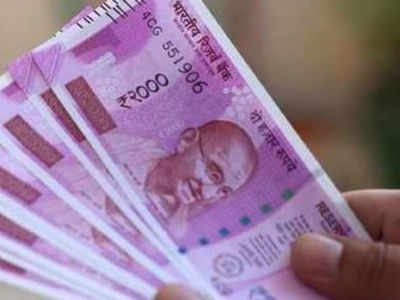Cairn Energy had moved courts in nine countries to enforce its $1.4 billion arbitral award against India, which the company won after a dispute with the country’s revenue authority over a retroactively applied capital gains tax.
Of these, the December 21 award from a three-member tribunal at the Permanent Court of Arbitration in the Netherlands has been recognised and confirmed by courts in the US, the UK, Netherlands, Canada and France, three people with knowledge of the matter said.
Cairn has started the process to register the award in Singapore, Japan, the United Arab Emirates and Cayman Islands, they said.
The registration of the award is the first step towards its enforcement in the event of the government not paying the firm.
Once the court recognises an arbitration award, the company can then petition it for seizing any government assets such as bank accounts, payments to state-owned entities, airplanes and ships in those jurisdictions, to recover the monies due to it, they said.
So far the government has not directly commented on honouring or challenging the Cairn arbitration award, but finance minister Nirmala Sitharaman had last week indicated of going in for an appeal.
Cairn’s shareholders, who include top financial institutions of the world, want the company to go for enforcement action should New Delhi fail to pay it.
While the company spokesperson wasn’t reachable for comments, Cairn had on Sunday stated that it will “begin meetings this week with shareholders in the UK and US, with the international arbitration award high on the agenda.”
“The company met the government of India last month and is taking all the necessary steps to protect their shareholders’ interests,” it had said.
The tribunal had on December 21 ruled that the government breached an investment treaty with the UK and was therefore liable to return the value of shares it had seized and sold, dividend confiscated and tax refund stopped to adjust a Rs 10,247 crore tax demand.
Cairn in its filings to the courts in the nine countries is seeking “to confirm this final and binding award under the New York Convention and commence enforcement proceedings to recover the losses caused by (India’s) unfair and inequitable treatment of their investments.”
After losing in the Supreme Court a case against levying tax on capital gains made in the 2007 sale by Hutchison of its India business to Vodafone for $11.2 billion, the government had in 2012 enacted legislation that gave it powers to tax such deals retrospectively.
Thereafter, the tax department raised demands on Vodafone as well as Cairn over alleged capital gains it made on reorganising its India business prior to its listing.
But unlike Vodafone where no enforcement action was taken, it seized and sold Cairn’s residual stake in the India unit, confiscated dividends due from such holding, and stopped tax refund due to it.
The Hague panel found that a 2012 law passed by the Parliament was a new tax, not a clarification of prior law that could be applied to earlier years.
Formally, the Convention on the Recognition and Enforcement of Foreign Arbitral Awards, the United Nations-backed document requires courts of contracting states to allow private agreements for arbitration and to recognize and enforce resulting awards from other contracting states.
The US and other courts have the authority to enforce arbitration agreements under the convention.
Finance minister Nirmala Sitharaman had on March 5 indicated the government’s intent to appeal against the award when she said it is her “duty” to appeal in cases where the nation’s sovereign authority to tax is questioned.
But the December 21 ruling specifically made clear that the basis of the judgment was not a challenge to the 2012 law, which gave the government powers to tax deals retrospectively, or India’s sovereign right to tax.
“The issue at stake is thus not a matter of domestic tax law; it is rather whether the fiscal measures taken by the State, valid or not under its own tax laws, violate international law,” the tribunal had said.
Sources said the award is final and the merits cannot be appealed, and under Dutch law, the grounds for setting aside an arbitral award are extremely narrow. These grounds include no valid arbitration agreement, rules for composition not being observed, tribunal exceeding its mandate, an award not signed or not reasoned and the order being contrary to public policy or public morals.
The Cairn award was unanimous with all three judges, including one appointed by the government of India consenting. The 582-page order gave detailed reasoning on the very point of the challenge brought by the Indian government, including the point that taxation did not form part of the bilateral investment treaties.
Source link


